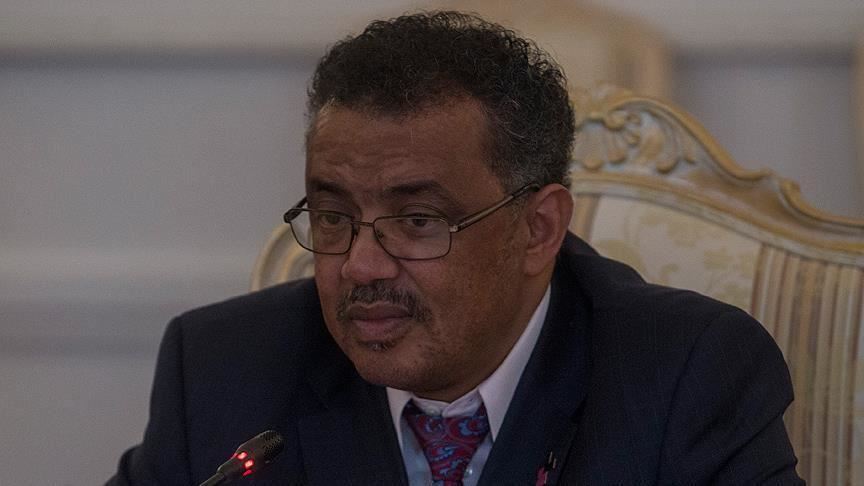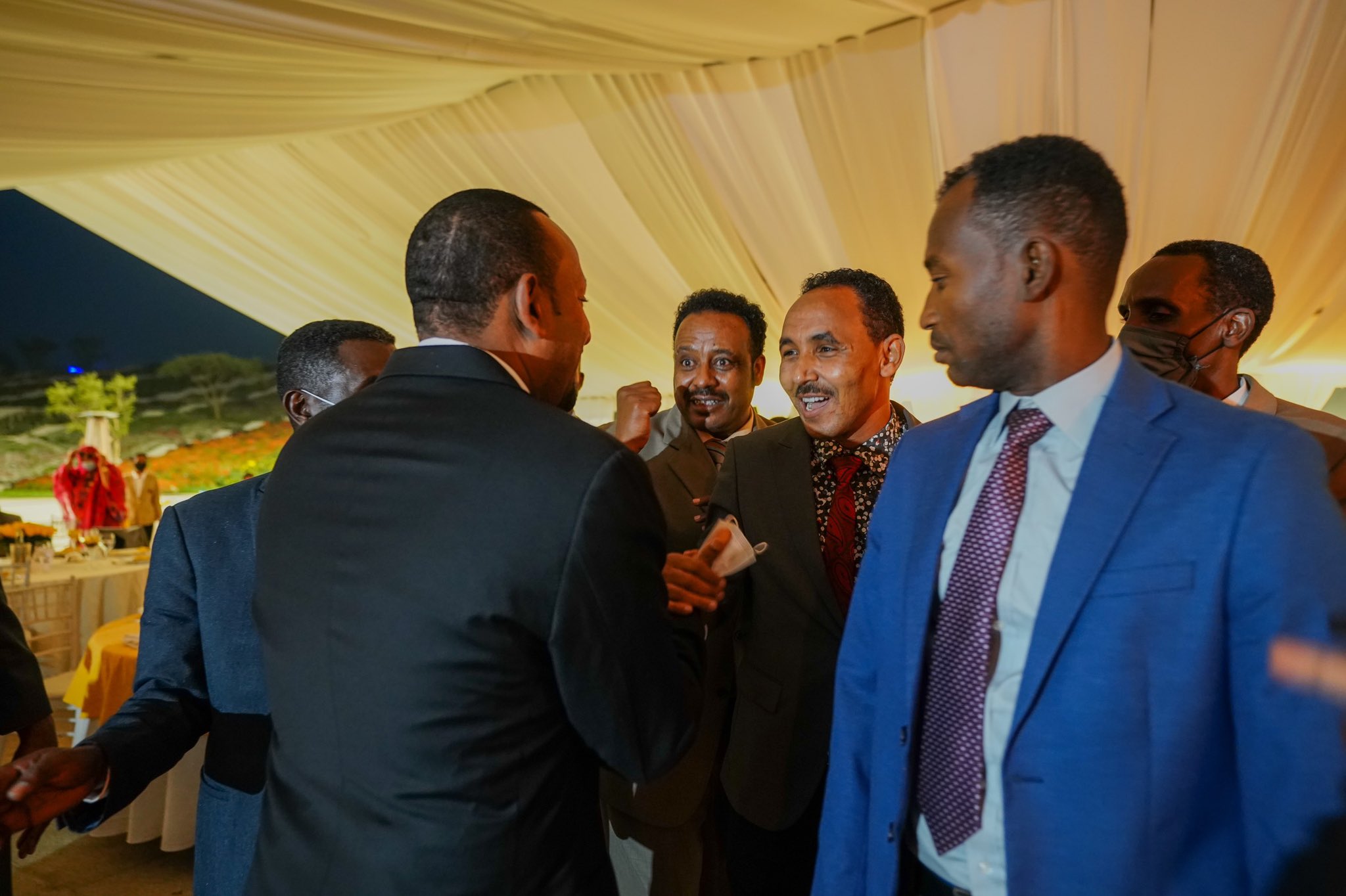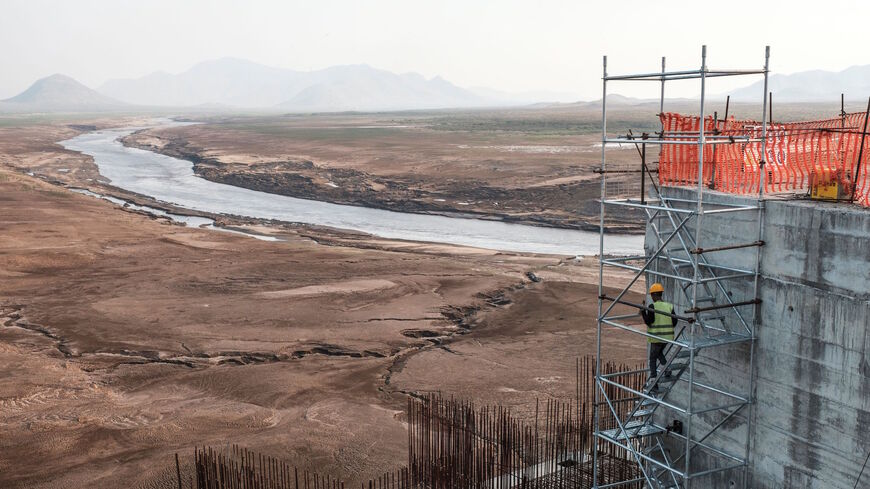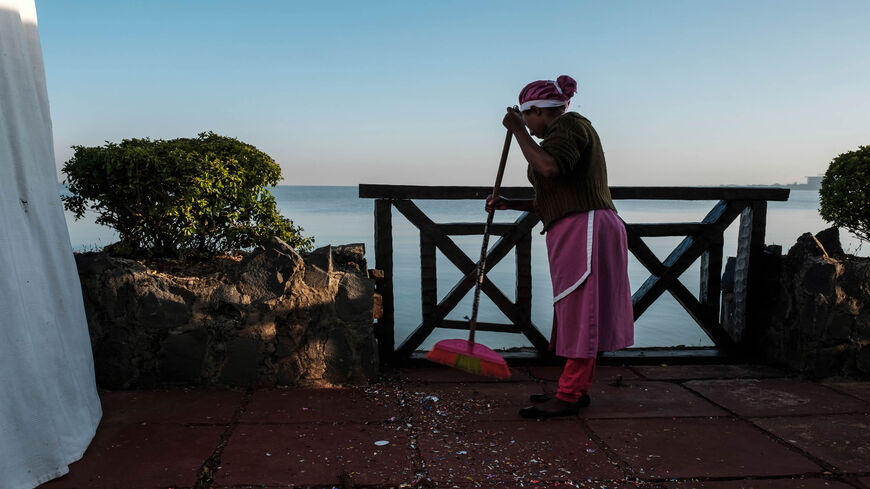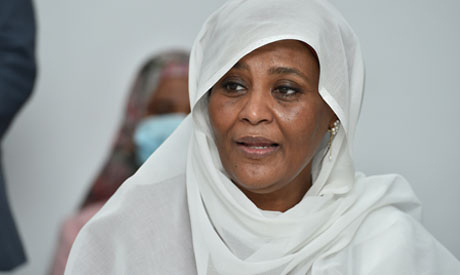 "A Southern Light at the end of the Tunnel"
"A Southern Light at the end of the Tunnel"
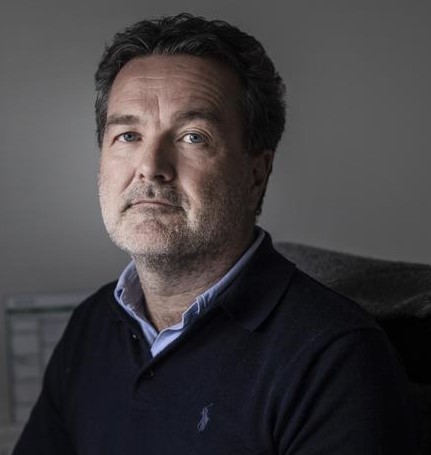 How a Norwegian man triggered Tigray War in Ethiopia
By Admasu Ashango
How a Norwegian man triggered Tigray War in Ethiopia
By Admasu Ashango *
http://awasaguardian.com/index.php/2021 ... -ethiopia/
June 20, 2021
In 1884, European colonizers held the Berlin conference to carve up Africa and to “
civilize” black people claiming that Africans were savages, inferior and
white man’s burden.
Over a century later, African people know that such racist “
civilizing mission” rationale has mostly been replaced with a new pretext: a “
humanitarian mission.” The successive events preceding the war in Tigray region of Ethiopia display how individual Western brokers of humanitarian crisis operate and why most Ethiopians hold the infamous Norwegian man
Kjetil Tronvoll responsible for inciting the Tigray conflict.
TPLF history in Tigray
The Tigrayan People’s Liberation Front (TPLF) leadership came to power in 1991 after a long guerrilla war by sacrificing tens of thousands of Tigrayan fighters for a “
Greater Tigray” dream, and killing over hundred-thousand Tigrayans thru famine after TPLF stole aid money to buy weapons, according to the
BBC.
http://news.bbc.co.uk/2/hi/8535189.stm In the past, the West supported the TPLF’s rebel insurrection and turned a blind eye when the rebels held their own people (Tigrayans) hostage, because the CIA and the US State Department vehemently opposed Ethiopia’s 1980s pro-Soviet central government. After overthrowing that central government in 1991, the US continued funding TPLF as it mercilessly ruled Ethiopia thru apartheid, tyranny and endless atrocities for nearly three decades, until it ultimately lost power in 2018.
Since then, the TPLF dictators have plotted to regain power in Ethiopia thru two ways: via a coup utilizing the pre-existing Tigrayan monopoly inside the ENDF military;
http://www.ginbot7.org/2014/10/07/tplfs ... our-years/ or, if that scheme fails, revert back to the 1980s tactic of guerrilla warfare and exploit the West’s “
humanitarian” intervention to portray itself as a victim. To the surprise of many Tigrayan activists, TPLF’s first option of military coup failed miserably; so we are currently at the second option. And with the core Tigray region being the most famine-prone populated area of Ethiopia, rebellions in Tigray have historically used food as a weapon of war for decades. Therefore, for the foreseeable future, blockading rural enclaves and starving Tigrayans
http://awasaguardian.com/index.php/2021 ... fraid-voa/ as hostages for leverage to acquire aid, weapons and other resources will be a blueprint the TPLF insurgents will follow, as long as the international community continues to peddle false portrayals of TPLF as victims.
But this senseless war was not supposed to happen in the first place.
HOW WAS WAR AVOIDED IN 2018?
There were many reasons why Prime Minister Dr
Abiy Ahmed won the Nobel Peace Prize.
https://www.nobelprize.org/prizes/peace ... s-release/ While the TPLF lost its main power at the center of Ethiopia in Addis Ababa due to massive peaceful protests, Dr Abiy’s new government still allowed TPLF to maintain relative power at the regional Tigray capital city of Mekelle in 2018. This approach enabled a rare peaceful transition of power in Ethiopia, making it an African success story. The new Prime Minister Dr Abiy Ahmed followed that accomplishment by legalizing all major rebel organizations (ONLF, OLF and Ginbot 7) to operate peacefully in Ethiopia and then by making a historic peace deal with Eritrea, which won him the Nobel Peace Prize.
That Nobel Prize not only recognized the accomplishments already achieved by Dr Abiy’s administration by the end of 2019; it also hoped to influence future successes, a similar tactic used by the Nobel Prize selection Committee that prematurely awarded US President
Barack Obama (before he launched wars in Syria & Libya.
https://www.cato.org/commentary/revoke- ... eace-prize) Fortunately, Dr Abiy chose a different path than Obama by promoting peace, not only inside Ethiopia, but also in South Sudan, Somalia and regionally. While some corrupt TPLF billionaires (who had crooked reputation even among Tigrayans) were previously charged; after Dr Abiy won the Nobel prize, he took a more conciliatory approach by sending elders to mediate with TPLF, even making several trips to Tigray himself to buildup trust and extend an olive branch.
 (Image: Abiy in Tigray pre-War)
(Image: Abiy in Tigray pre-War)
All these mediatory moves and appeasing acts by Abiy occurred, while dodging assassination attempts and enduring TPLF-financed destabilizations nationwide. Some of his supporters even said Abiy deserves another award, the
Ghandi Peace Prize, for his restraint and pacific efforts. But the rest of Ethiopians accused Abiy of unfairness and for displaying extra patience for Tigray, because he sent troops to crackdown against Wolayta separatist dissidents.
All the peacemaking acts in Tigray by Abiy robbed the war that the TPLF desperately wanted…,at least temporarily.
BEHIND THE SCENES
The power-hungry millionaires inside TPLF
https://tesfanews.net/crony-capitalism- ... racle/?amp knew they needed a major disorder to overthrow Abiy and regain their hegemony. The problem in 2018 was the regular Tigrayan man & woman did not lose anything under Abiy, because the average Tigrayan did not care about TPLF’s multi-billion dollar empire.
https://scholarlycommons.law.case.edu/c ... ontext=jil Therefore, the TPLF leadership had to make-up grievances out of thin air and build a political rationale of victimhood to justify this senseless conflict.
After brutally oppressing 100 Million Ethiopians for 28 years and lacking sympathy from most independent observers in the international community, the TPLF pressed a reset [deleted] in 2019 using its Western networks (the
Alex de Waals of Europe and
Herman Cohens of US et al) and betted on the inherent racism or usual ignorance of the new-breed of young Westerners assigned to Africa
(correspondents, diplomats, writers ..) to portray yet another African crisis that is a white man’s burden. Most of all, TPLF needed Western figures to rubber-stamp its message between 2019-2020. This is where Norwegian Professor
Kjetil Tronvoll came into the picture as the most valuable actor to damage the transition in Ethiopia. He was already a well-known figure in Ethiopia, particularly inside central Tigray. And post-2018, Professor Tronvoll became a regular feature on TPLF media outlets like
Dimtsi Weyane and TMMA’s
Tigray TV, often criticizing shortcomings of the new Prime Minister Abiy’s reforms, virtually on a daily basis, even while Abiy won the Nobel Peace Prize.
 (Image: Prof. Tronvoll in TPLF media Dimtsi Woyane (DW)
(Image: Prof. Tronvoll in TPLF media Dimtsi Woyane (DW)
Since then, Prof. Tronvoll essentially became the TPLF ambassador to the outside world, while simultaneously amplifying & normalizing the most fringe voices of Tigrayan society by utilizing his
White Privilege to use various publications to promote Tigray “
secession,” “
independence,” or “
statehood”
https://addisstandard.com/in-depth-[deleted] ... statehood/ radical narratives and the “
collapse” of Ethiopia. After decades of tyranny and looting billions of dollars
https://www.ginbot7.org/effort-and-the- ... ss-empire/ from Ethiopians, the TPLF dictators desperately needed a White proxy and Mr Tronvoll knew he will be effective.
One of the dangerous residues of the European colonial legacy is that many Africans continue to seek confirmation from White experts, white institutions, officials or other White figures. And both sides exploit this dynamic and it is quite noticeable through out every Ethiopian transaction with the outside world. Whether it is in how Ethiopians interact with Western institutions or even how Ethiopians react to White figures on Social Media platforms like
Twitter, this reality of White privilege and superiority is manifested everyday. And Africans often enable it, unwittingly. Yet this vicious cycle is not just a two-wheeled machine, but Western policy-makers add a third component to it by consuming only the analysis and proposals of these White brokers of African crisis.
Over the years, individual Western experts, lobbyists and analysts have monetized and taken advantage of this reality to a perfection. While the full extent of his alleged business dealings in TPLF-era Ethiopia are unknown, Professor Kjetil appears to have become the unofficial spokesman of TPLF hardliners. (Norwegian companies like
Yara, have allegedly won multi-million dollar business contracts after praising former TPLF dictator
Meles Zenawi) It wasn’t long after TPLF lost power in Addis Ababa, that Mr Tronvoll began beating the drums of war and heralding fringe factions inside TPLF who wanted “
secession” as the legitimate representation of the views of Tigray people. When these former TPLF extremists established parties like TIP who wanted to implement the original secessionist TPLF manifesto, Mr Tronvoll was quick to advertise them as legitimate “
opposition” party in Tigray despite having no ideological difference with the TPLF rulers (like Ezema or other real opposition forces do.) In various articles he published on major Ethiopian and international media outlets, Mr Tronvoll parroted the radical views of TPLF ideologues and ignored even longstanding opposition movements inside Tigray like ARENA, in favor of new and fringe pro-TPLF movements, which helped push TPLF moderates more to the extreme. For example, at the end of 2019, even Tigray president
Debretsion expressed a more moderate stance on Abiy’s reforms compared to extreme commentaries broadcasted & shared on Tigrayan websites, traditional and social media outlets quoting Professor Kjetil Tronvoll.
When many Ethiopians accused him of supporting and intellectualizing TPLF militancy, Mr Tronvoll defended himself claiming to stand for dissidents. But in reality, he not only galvanized TPLF extremists in Tigray to weaken TPLF moderates, but he also repeatedly downplayed the persecuted opposition dissidents inside Welkait & Raya parts of Tigray, despite self-proclaiming that he stands for autonomy and dissidents.
Pre-war, Mr Tronvoll became the most influential TPLF surrogate using at least two key strategies:
1. Depicting Prosperity Party (PP) as anti-multinational-federalism, and thus portraying TPLF as the only strong defender of ethnic autonomy.
2. Depicting TPLF as a pro-election democratic organization resisting an authoritarian central government in Addis Ababa, that will indefinitely postpone elections
Both tasks were a tall order, especially since TPLF itself is famous for ethnic cleansings in Welkait (“Western Tigray”) and for rigging elections with its North Korean type 99% poll victories year after year. In one interview Prof Tronvoll had with an independent Oromo media, right after he personally witnessed TPLF’s sham election as “
international observer,” he dodged questions about the latest rigging,
https://yeroo.org/2020/10/16/yeroo-inte ... -ethiopia/ in order to not admit that yet another rigged 99% election victory for TPLF just took place. When it comes to the topic of autonomy, the main nuisance for TPLF was that (despite pressure from major opposition groups like EZEMA and Balderas) Abiy refused to reform the ethnic-federalism system created by TPLF and he kept the status quo of autonomy for ethnic enclaves. Even today, after TPLF was removed, Prime Minister Abiy Ahmed’s political position remains much closer to TPLF than any other party. For example, the current transitional government of Tigray Prosperity Party (PP) established by Abiy supports multinational federalism, just like the former TPLF rulers did. The current Tigray-PP also opposes Eritrean annexation of Badme; just like TPLF. Similarly, the current Tigray-PP opposes Amhara claims on Welkait (Western Tigray) and Afar claims on other territories in Tigray. Therefore, Tigray-PP and TPLF are virtually the exact same parties by policy and ideology; minus the multi-billion dollar conglomerate the TPLF built.
In hindsight, by starting a war it can not win, the TPLF essentially forced Abiy (who was pro status quo in Tigray) to be more dependent on the Amhara & Afar forces that he can not control but desperately needed for law enforcement. Accordingly, during its efforts to mobilize support pre-War, the TPLF could not truthfully portray Abiy’s administration as anti-autonomy, so it did the next best thing: simply make it up… and do so repeatedly until the lies became truth.
For this to happen, Professor Kjetil was the most valuable TPLF surrogate in this endeavor; not only because he was the most actively involved White “
expert” in Ethiopian politics and often quoted by Western media; but he also had significant personal connections with famous nativist and separatist ethnic-nationalist activists through out the country, including in our SNNP region. (of-course he claimed to do this for “
research,” though his “
research” appears to conveniently skip the other half of the Ethiopian population who oppose ethnic-federalism) In many cases, Mr Tronvoll used his easy access to Western media to overtly push the narrative that only such ethnic extremists who advocate for ethnic separatism and nativism in Ethiopia are the legitimate expression of Ethiopian society. This false narrative is why many Western media today put emphasis on the incarceration of radical nativists like
Jawar Mohammed to discredit the Ethiopian election; while in reality, moderates of both sides of the aisle [ethnic-federalists (PP) and Ethiopianists (Ezema)] are fairly represented in the upcoming democratic election. By the end of 2019, several popular ethno-nationalists (from the Oromo, Sidama, Gumuz, Wolayta et al regions) that Mr Tronvoll closely associated with, started buying into the idea of TPLF as the leader of a so-called federalist coalition. Some of these extreme nativists even made trips to Mekelle for “
federalist” conferences or meetings.
While these confrontational developments increased tensions between TPLF and the central government, it was not enough to trigger the war alone. Particularly, (though most Tigrayan people naturally had deep identity-based allegiance to the TPLF) a significant portion of the Tigrayan population did not buy into TPLF’s big lie that Abiy was a threat to Tigrayan autonomy. In contrast, the second strategy of declaring unilateral elections inside Tigray, however, became very instrumental in emotionally rallying and involving millions of average Tigrayans personally in the post-2018 TPLF defiance against the rule of law. As expected, both before and after this catastrophic decision by TPLF, Mr Tronvoll became the most influential white voice legitimizing such mutiny and intellectualizing Tigrayan grievances to the international community. On the ground, he appeared on several Tigrayan media outlets openly portraying Abiy as a “
dangerous” man and rendering the unilateral TPLF actions as justified. Several notable Ethiopian peace activists and scholars like Prof
Yohanes Gedamu, Teshome Borago, Ephrem Madebo and even his own research colleague
Biruk Terrefe criticized Mr Tronvoll’s actions, as he became the only Western actor legitimizing the unauthorized election in Tigray. Other Ethiopians urged Mr Tronvoll (in vain) to become an instrument for good by using his deep connections with TPLF leaders like
Getachew Reda, Abay Tsehaye as well as TPLF ideologues like Mekelle University President
Kindeya G-Hiwot, to de-escalate tensions. He refused. During his unauthorized trip to Tigray, he met Prof
Meresa Tsehaye, another key TPLF ideologue and an extremist who labelled Prime Minister Abiy Ahmed “
illegitimate” and “
dictator.” As a leading proponent of the unilateral illegal election, Prof Tsehaye was appointed as chairman of the unauthorized Tigray election board, which Prof Tronvoll praised and met in September 2020.
In a controversial tweet, Tronvoll then posted a selfie with Prof Tsehaye in Mekelle, declaring himself as a one-man institution and
the only accredited international election observer
in Tigray.
In response, many TPLF leaders sought to use Mr Tronvoll to bring credibility to their illegal election and normalize their mutiny.
After the above TPLF strategies took on a life of their own, the prospects for war became a matter of when, not if. By mid 2020, TPLF was already preparing for war and digging trenches, several months before conflict actually began. Once Tigray essentially became an independent government outside the control of the Ethiopian government, all the federal bases and ENDF machinery (representing more than half of the entire nation’s defense) stationed inside Tigray were held hostage. After TPLF opened fire on Nov 4, the only question remaining was if Prime Minister Abiy had any more patience left, to the level of suicidal and if he cares more about his Nobel Peace stamped personal reputation rather than the whole country’s survival. He chose the latter.
Of course, as conflict was beginning, Mr Tronvoll continued emboldening the TPLF leaders, while telling international media how brave and powerful TPLF insurrectionists are. Since he was the main “
analyst” referred by Western media, he appeared on several news agencies like German’s
Deutsche Welle (DW): saying
Tigrayans are fighters….there will never be peace in northern Ethiopia,
he added.
In November, Mr Tronvoll also told
AP that TPLF can
fight its way to the capital,
because Tigray fighters
outnumber the federal army by at least two or three multiples,
suggesting that nearly half million Tigrayans are combatants.
Yet, when TPLF suddenly lost Mekelle and the War, the narrative quickly changed and every single TPLF combatant now became an innocent civilian, thus demanding Western “
humanitarian intervention” to stop the genocidal Abiy Ahmed, according to Mr Tronvoll.
Even during the war, he continued to portray the TPLF as a victim who used to practice a free democracy. Mr Tronvoll labeled Abiy a “
dictator” while using descriptions like the
elected regional government of TPLF
pursuing a
resistance war,
despite the fact TPLF admitted waging
pre-emptive strike
to trigger the war.
(Many of those murdered in ENDF camps in Tigray were soldiers from SNNP region because TPLF assigned more southerners at the Eritrean border fearing Oromo & Amhara defections) While the victims were non-Tigrayans in the army who were ethnic profiled by Tigrayan generals in ENDF, Mr Tronvoll disseminated alternative facts and narratives. For example, in January, he labeled TPLF insurrection as “
resistance struggle” and as
a war of independence from an Ethiopia they no longer can trust or live in peace with,
perpetuating the seeds of hate he planted using his access to mass media.
Whenever TPLF forces assassinate or ambush government forces, Mr Tronvoll was one of the first public figures to advertise the events as a successful show of force that obligates Addis Ababa to negotiate with terrorists. This displayed, how close he remained with insurgent military personal and TPLF leaders. And whenever the TPLF lost a battle, he was among the first to disseminate and depict the events as a “
massacre” of Tigrayan civilians, which feeds more into the false narrative of “
Tigray genocide.” The fact that most TPLF fighters, even some elite forces, have been in civilian clothing has facilitated such propaganda to this day and it is accepted as fact by Western media without any scrutiny. Therefore, instead of pressuring the disarmament of TPLF insurgents, destructive Western media narratives continue to embolden TPLF to use more civilian clothed fighters and perpetuate the human right crisis.
Unfortunately, more will die in the coming weeks and this is just the way promoters of African crisis like Prof. Tronvoll anticipated. In one of his most racist comments, Mr Tronvoll said
Spring is the traditional Ethiopian warring season,
as if killing is our preferred ritual: reminiscent of how White colonizers described black Africa as savage people who need civilizing.
In recent weeks, Prof Tronvoll spends most of his time attacking the Nobel Peace Prize committee for rewarding Abiy Ahmed while insulting the African Union (AU) for alleged “
incompetence” and criticizing UN Security Council officials like Sec-General
Antonio Guterres for not overthrowing the Ethiopian government. A White “
expert” who preyed on black people to incite a catastrophic war inside the only black country that defeated European colonialists, now slandering the African Union and pushing UN sanctions on the country, while demanding the revocation of a Nobel Prize that is rarely given to a black African. The brutal irony can not be lost for the history books.
The sad reality is there is no turning back, for those who bought the big lie and are now at the battlefield. Thousands have already died and the TPLF will likely hold more Tigrayans hostage, to get access to dwindling resources. This is expected because its 1980s reputation shows that TPLF uses hunger of its hostages as a strategy, a weapon of war. And many more will die in the coming months, because Western white powers will waste their energy on patronizing Ethiopia with punitive actions which embolden rebels and more outlaw behavior that they wouldn’t tolerate if it happened in their own home countries. By the time enough responsible Western governments finally join Ethiopia in demanding the disarmament and condemnation of TPLF insurgents, it will be too late for the Tigrayan men and women who die raising arms as well as for the other Ethiopians who will die defending the rule of law in this conflict that should have never happened.
Many years from now, when Ethiopians and other Africans look back in history on how one Norwegian man (among several other Europeans who dumped fuel in the fire) played the biggest role in triggering this Tigray conflict that will ultimately incur a death-toll of hundreds of thousands of souls, many of us will wonder, what was the role of Norwegian government behind Prof. Kjetil Tronvoll. If the multimillion dollar funding that Prof Tronvoll’s group allegedly received from Norway’s foreign ministry
https://www.newsinenglish.no/2016/10/19 ... ting-fees/ is accurate, more questions should arise about the indirect destabilization roles of the Norway foreign affairs desk that was once already accused of legitimizing terror groups like LTTE, which prolonging the Sri Lankan civil war in the name of endless ceasefire agreements.
But what happened in Tigray is unique since, as the aforementioned two-part rationale for the conflict depicts, Mr Tronvoll’s direct role pre-war (inside Tigray and among international media) was the most influential in rehabilitating TPLF’s corrupt & ruthless reputation, promoting extremist factions inside Tigray as well as legitimizing and beating the drums of war.
Mr Tronvoll will not be alone, and as often is the case, the white knights of “
international justice” and “
humanitarian intervention” often follow these promoters of African crisis, in order to criminalize African leaders and destabilize African states. Such criminalization of black Africans in power is one of the methods the West uses to advance their geopolitical interests, to perpetuate a cycle of wars, legitimize coups and destroy once budding democracies. In contrast, It is no coincidence that Western leaders who caused mass atrocities of millions of civilians in places like Iraq and Libya never face justice, because Western capitals know
peaceful transition of power
is valuable to sustain their stable democracies.
This can not be overstated: every-time the West delegitimizes democratic African governments and legitimizes insurrections, they are robbing our continent of the “
peaceful transition of power” that they hold so dear in their own Western capitals. Opposing such Western policies is not only about protecting African sovereignty, it is also a matter of defending human rights and breaking the cycle of wars in Africa.
It is up-to us Africans, whether or not we learn a lesson from this period in history to change our views, how we interact and enable the White promoters & brokers of endless African crisis. They are a residue of the European colonial legacy and tackling them requires the same change in mindset that our ancestors had in the 1960s liberation movements, across the continent. Vital in this process is documenting who the main White players are, and what they do to trigger wars that push our black children to slaughter each other; while sitting in the comfort of their peaceful homes in the West.
*
Admasu Ashango is a human rights & peace activists and former chair of the WCHR. To submit analysis and opinion articles for publication, contact AG at [email protected]
___________________
Numbers of #EthioElection2021.
☞ 46 political parties,
☞ 9,505 candidates,
☞ 637 constituencies,
☞ 48,000 polling stations,
☞ 38m+ voters,
☞ 207k ballot boxes,
☞ 1,400+ certified reporters,
☞ 46k+ observers,
☞ 100+ int'l observers, and etc..
(Source: @NEBEthiopia)




